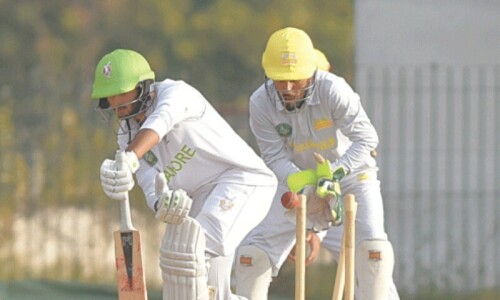A RECENT report by Freedom House, the US-based watchdog that assesses democratic trends around the world, has placed Pakistan among the top 10 countries where digital freedoms are being curtailed. Covering the period from June 2020 to May 2021, the latest findings are consistent with previous assessments. They show that internet freedom continues to decline in the country where digital space has been characterised as ‘not free’ for some years now. In the latest report, of the nine internet controls listed, Pakistan has escaped only two categories, as it did in the previous review: there has been no ‘new censorship law’ and no ‘new surveillance law’. In the 2019 report, it had also managed to avoid the ‘social media platform blocked’ and ‘internet user physically assaulted’ categories. In fact, in 2016, Pakistan had lifted a three-year ban on YouTube. Unfortunately, there are few positive signs now. A TikTok ban continues and the PTA, which itself admits to having blocked thousands of websites, has refused to lift it saying that it won’t do so until the social media platform removes ‘unlawful content’. Given this trend, where the government invokes controversial online rules to clamp down on digital space, it is no wonder that Pakistan has scored a mere 25 out of 100 on internet freedom.
In fact, while the number of digital users is growing in the country, internet access itself remains limited. Even without the state’s curbs and constant meddling for reasons of ‘security’ and ‘morality’, citizens have to deal with a range of difficulties. For instance, slow internet speed is a norm as are frequent power outages that disrupt connectivity. Large areas remain without internet connections and thousands of students pursuing their studies from home on account of Covid lockdowns have found it hard to keep up with online classes. The pupils of many low-income schools without internet facilities have fared even worse. Similarly, there is inequality of access along gender lines. Freedom House points out that this digital divide “is among the highest in the world”, with conservative traditions prohibiting many women from owning a mobile device, let alone accessing a world of information that even the unlettered among them could have benefited from. How disturbing it is then that the state should choose to overlook these glaring deficiencies in its quest for digitisation. Instead, it polices the digital space through draconian cyber laws in the misplaced belief that its actions will keep Pakistan ‘safe’ from evil intentions.
Published in Dawn, September 27th, 2021











































